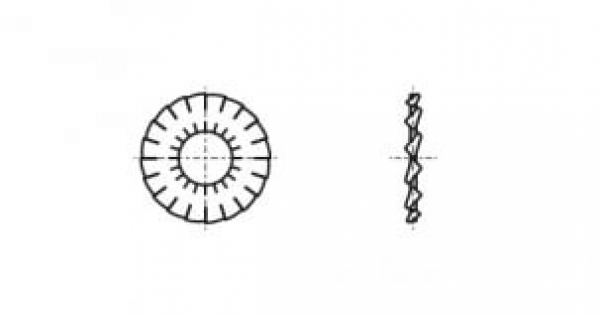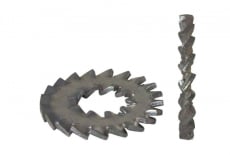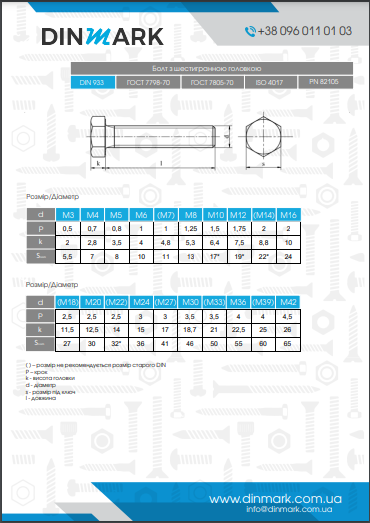
A DIN 6798 D serrated flange nut is a specialized type of fastener used to secure bolts and nuts, preventing them from loosening due to vibration or dynamic loads. The nut has a cylindrical shape with an internal thread that matches the size of the bolt or nut, and external teeth that embed into the material of the part, creating a secure connection.
Dimensions of DIN 6798 D Serrated Flange Nut
The dimensions of a DIN 6798 D serrated flange nut are determined by the inner diameter, outer diameter, thickness, and number of teeth. These parameters are regulated by the DIN 6798 D standard and are selected based on the diameter of the fastener and the material it comes into contact with.
Strength Class of DIN 6798 D
The strength class of a DIN 6798 D serrated flange nut is determined by the material from which it is made. The most common materials are carbon steel, stainless steel, or brass. Each material has its own strength class, which indicates the nut's ability to withstand certain loads.
Fastener Group DIN 6798 D Serrated Flange Nut
DIN 6798 D serrated flange nuts belong to the group of fasteners that provide additional security for connections. They are often used in conjunction with bolts and nuts to create reliable and durable connections in various structures.
Materials Used for DIN 6798 D
- Carbon steel: The most common material for manufacturing serrated flange nuts. It provides high strength and rigidity.
- Stainless steel: Used in aggressive environments where high corrosion resistance is required.
- Brass: Used for connections that are subject to vibration, as brass has good damping properties.
Applications of DIN 6798 D Serrated Flange Nut
DIN 6798 D serrated flange nuts are widely used in various industries:
- Mechanical engineering: For securing parts of machines and mechanisms that are subject to vibration and dynamic loads.
- Automotive industry: For fastening chassis elements, engines, and other components.
- Electrical engineering: For securing terminal connections and other elements of electrical devices.
- Construction: For fastening metal structures that are exposed to wind and seismic loads.
Advantages of Using DIN 6798 D Serrated Flange Nut:
- Secure fastening: The teeth of the nut provide a secure fastening, preventing the bolt or nut from loosening.
- High strength: The materials used for the nuts ensure high strength and durability.
- Vibration resistance: The teeth of the nut effectively counteract vibration, ensuring a reliable connection under dynamic conditions.
- Versatility: Can be used with various types of bolts and nuts.
DIN 6798 D serrated flange nuts are an indispensable fastening element in many industries. Thanks to their technical characteristics and functionality, they provide a secure fastening of connections and increase the safety of operation of various structures.









